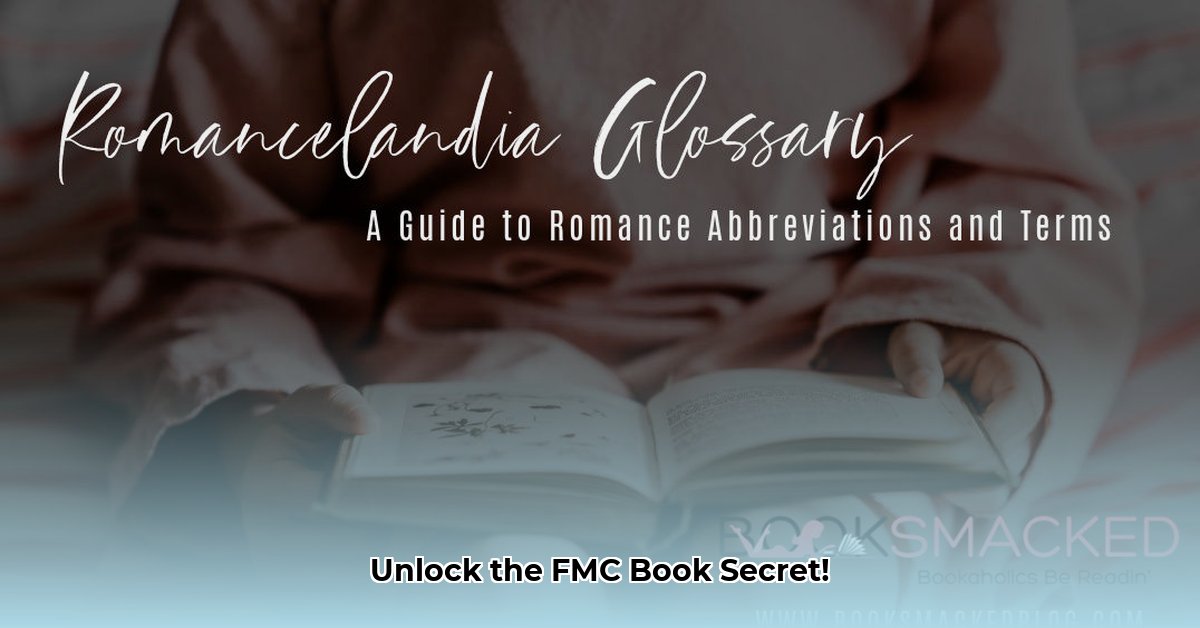
Ever encounter "FMC" in a book review and feel lost? This simple guide demystifies common book blogging shorthand, helping you navigate online discussions with confidence. We'll define FMC, explore its context, and introduce related terms to enhance your understanding of the book blogging community's unique language.
What Does FMC Mean?
FMC stands for Female Main Character. It's a time-saving acronym used by book bloggers to quickly identify the main character's gender in reviews and discussions. This compact term streamlines conversations about books, particularly those featuring strong female leads or exploring gender dynamics.
Why Use Acronyms in Book Blogging?
The book blogging world is fast-paced. Using acronyms like FMC allows for efficient communication. Imagine typing "Female Main Character" repeatedly in every post—it's cumbersome! Acronyms like FMC create a shared language, fostering a sense of community among readers and bloggers.
FMC in Action: Real-World Examples
Consider these examples illustrating FMC's use:
- "The FMC's resilience throughout the novel was truly inspiring." This clearly indicates that the review focuses on the female protagonist's strength.
- "The FMC's relationship with the supporting characters added depth to the story." Here, the term highlights the female lead's impact on the overall narrative.
Related Book Blogging Terms
Understanding FMC is only the beginning! Here are other helpful acronyms and terms:
- MMC (Male Main Character): Refers to the male protagonist. Example: "The MMC's complex personality captivated readers."
- MC (Main Character): This is a general term for the central character, regardless of gender. Example: "The MC's journey of self-discovery was transformative."
- OTP (One True Pairing): Represents the romantic couple readers are rooting for. Example: "The OTP's chemistry was undeniable."
- DNF (Did Not Finish): Indicates the reader abandoned the book. Example: "I DNF'd this book after 50 pages; it wasn't for me."
- HEA (Happily Ever After): Used to describe a happy ending in romance novels. Example: "The book concluded with a satisfying HEA."
- ARC (Advance Reader Copy): A pre-publication copy of a book given to reviewers. Example: "I received an ARC and loved the twist at the end!"
Mastering these terms improves your participation and understanding within online book communities.
The Evolution and Impact of FMC
The use of FMC, like much internet slang, evolved organically within the book blogging community. Its adoption exemplifies the need for efficient communication in a fast-paced online environment. The consistent use of FMC and similar terms has fostered a unique online culture, connecting readers and facilitating insightful discussions.
A Handy Cheat Sheet
This table summarizes the key terms:
| Acronym | Meaning | Example |
|---|---|---|
| FMC | Female Main Character | "The FMC's growth was a highlight of the novel." |
| MMC | Male Main Character | "The MMC's internal conflict drove the plot." |
| MC | Main Character | "The MC's choices had far-reaching consequences." |
| OTP | One True Pairing | "The OTP's relationship was the emotional core of the story." |
| DNF | Did Not Finish | "I DNF'd this book—it wasn't for me." |
| HEA | Happily Ever After | "The novel concluded with a heartwarming HEA." |
| ARC | Advance Reader Copy | "I received an ARC and was blown away by the writing." |
Understanding these acronyms is key to effectively participating in online book discussions. Happy reading!